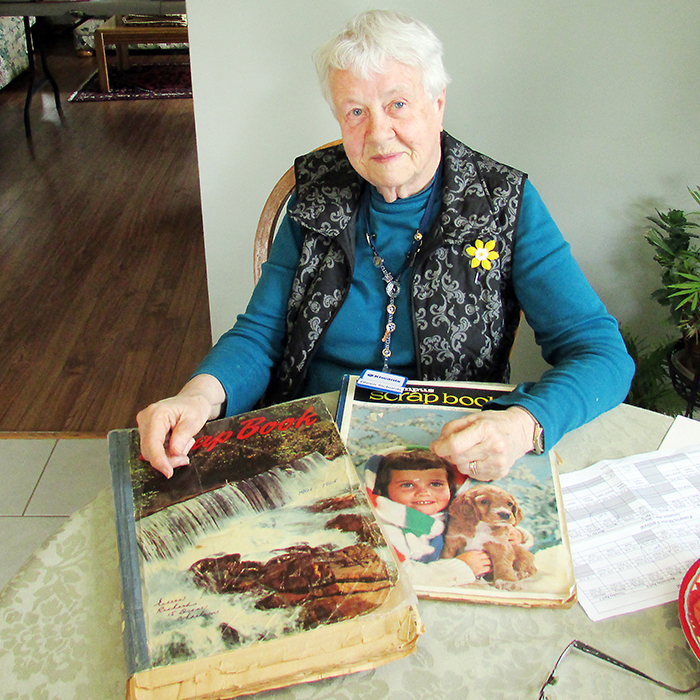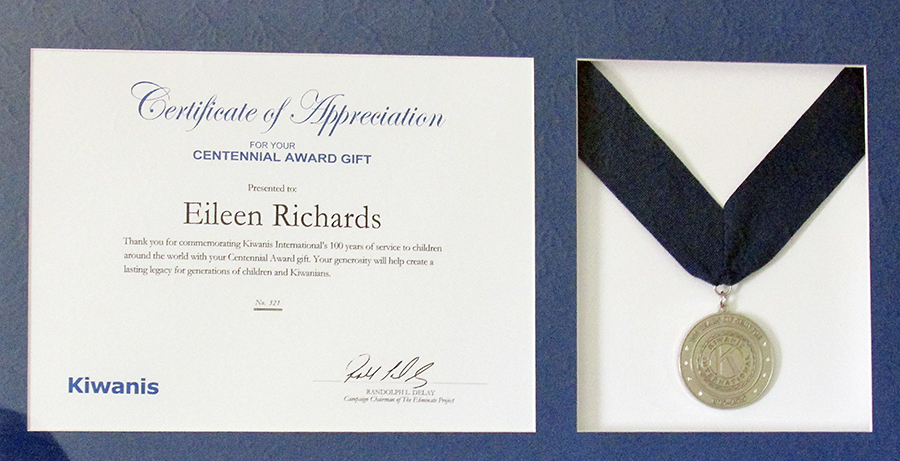
It was the spring of 1945, World War Two was ending and Kiwanian Lyle Alexander organized what he called Kiwanis Music Day.
Eileen Richards was there that day – and 72 years later, she’s still helping out with the Chatham landmark institution known as the Kiwanis Music Festival.
“We just went to the (Tecumseh) Park and sang,” she said. “I was in, I think, Grade 11 at CVS (Chatham Vocational School). We just walked across the street.”
From a one-day event with a few schoolchildren and bands, the Festival has grown to a nearly two-week event with more than 700 entrants.
Eileen served as secretary of the festival for 11 years from 1961 to 1971 and the 87-year-old remembers many of the events as if they had taken place yesterday.
“The first year we had accordions in the syllabus, we had a massive fire downtown,” she said.
“I was standing at the window of Wesley Hall (in St. Andrew’s) on a Friday night when a large fire happened at the corner of King and Fifth Streets. The Royal Bank, McCall’s Drug Store and Spencer Stone Dry Goods burned that night. I remember watching the flames through the window and hearing the accordion music in the hall behind me.”
The biggest change since Eileen was secretary has been in the use of computers.
“All the entries came to the house, 880 to 900 of them and I had to handle them all manually,” she said. “My husband Lloyd bought a 4 X 8 piece of press board, put it in the basement and we used small cards to time the entire festival, making sure nothing overlapped and out of town performers could be here and not have to travel too many times. That’s all done with a computer now.”
Eileen said she was just “one among many” who have held secretary duties, naming Margaret Johnson, Jean Peck, Jim Pepper and Janet Bradden among the dedicated supporters of the event.
“Don’t make this story about me,” she said. “I received far more from the festival than I put into it.”
She said it was a pleasure working with so many
community minded citizens.
“I wonder if Mr. Alexander would ever dream that his son Bill would be festival chairman or that 22 years later, his son, Gordon, would take a turn as chairman.”
She described her overriding memory of “those men, those wonderful Kiwanians”, who really put their heart into it.
“I remember Lawrence Kerr coming in from the farm with his boots on and sitting in my kitchen while we
would come in here with his boots on from the farm and we’d figure out what was going on with the money,” she recalled.
For many years, festival adjudicators came from Europe and were treated as celebrities.
“We were part of the Federation of Canadian Music Festivals and these judges would come from England and Ireland, mostly, and they would tour Canada, adjudicating right across the country.”
She said, “most of them were liked. I remember they would give good comments and the students would pay attention and then the teachers would say I’ve been telling that child that all along.”
She fondly remembered dinners hosted at the William Pitt Hotel, current site of the Downtown Chatham Centre.
“This little girl from the country never stepped foot in the William Pitt Hotel until then. I would be invited to the dinner and winners of the festival would perform. It was just a lot of good old stuff.”
She said one year the Kiwanians sent her as a local representative to the national music festival convention in Victoria, BC.
“They gave me $200 to go to the convention in Victoria and that covered it,” she said. “The whole family went and we camped in a trailer along the way. I got to go to the Empress Hotel in Victoria. Another time I got to go to Charlottetown, Prince Edward Island.”
She said the media helped make the festival what it is today.
“The Chatham Daily News, the Windsor Star and the London Free Press were on site every day,” she said. “Bob Boughner (of the News) put us on the map. It (1961) was his first year. He came and he had so much energy and he was full of it.”
Win Miller (of the Free Press) presented me with white gloves at the end of one festival because she thought the work (I had done) was well done and worth it. In those days we had to record all the scores and get them to the papers each day.”

She said she still remembers some of the thousands of performers.
“I used to love the kindergarten children with their rhythm bands with triangles and drums. They were delightful.”
The talent and dedication of competitors was exceptional.
“We had one girl, Burnetta Day, from Harrow. One night her home burned and the next day she showed up in borrowed clothes to sing. She went on and became a concert singer and came back to perform at the Pines.”
Another student, Donald Clark “always tried in the men’s rose bowl. He came in second for years but he persisted and one day he got the men’s rose bowl and he went on music career in Germany.”
One thing that hasn’t changed over the years is the intent of the festival.
“Kiwanians believe in helping children,” she said. “I believe in that festival. It has enriched a lot of lives and not just in the music.”







A wonderful lady and a great story. So many memories of the past history of The Chatham Kiwanis Music Festival.